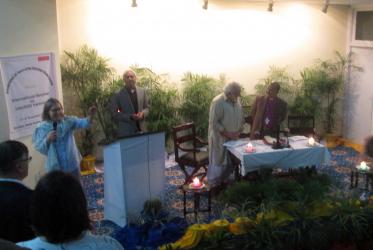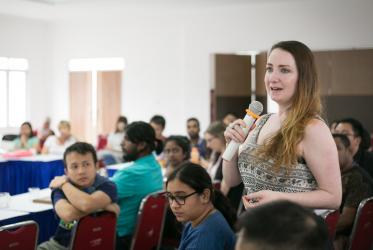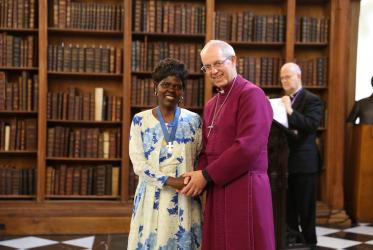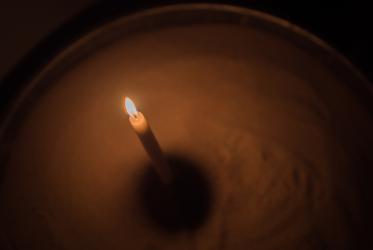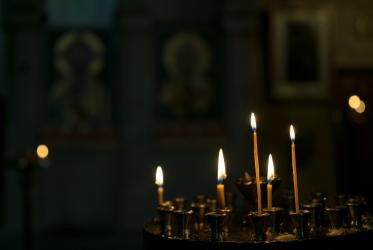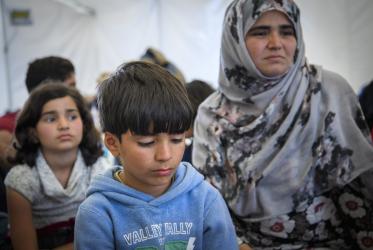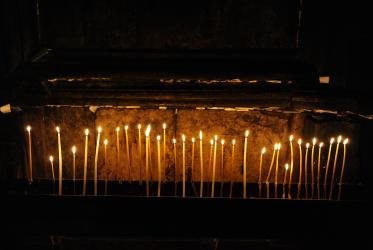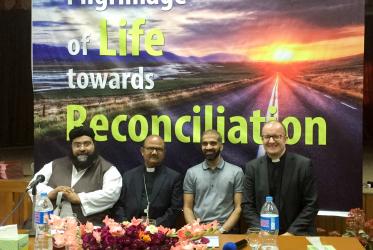Displaying 21 - 40 of 64
20 April 2018
Bishop Helga - diaconal apostle
22 December 2017
WCC condemns attack on church in Pakistan
17 December 2017
In Pakistan, Christian Study Centre celebrates 50 years
10 November 2017
“I can do things better back home”
30 August 2017
WCC expresses sorrow in wake of attack on Muslim shrine in Pakistan
17 February 2017
Churches in Norway and Pakistan break new ecumenical ground
26 January 2017
In wake of Pakistan attack, WCC offers prayers, support
08 August 2016
Religion: Way of war or path to peace?
30 June 2016
Lahore bombing shows vulnerability of Pakistanis
31 March 2016
WCC strongly condemns terror attack in Pakistan
28 March 2016
Church of Pakistan hosts Muslims, Christians
23 March 2016


